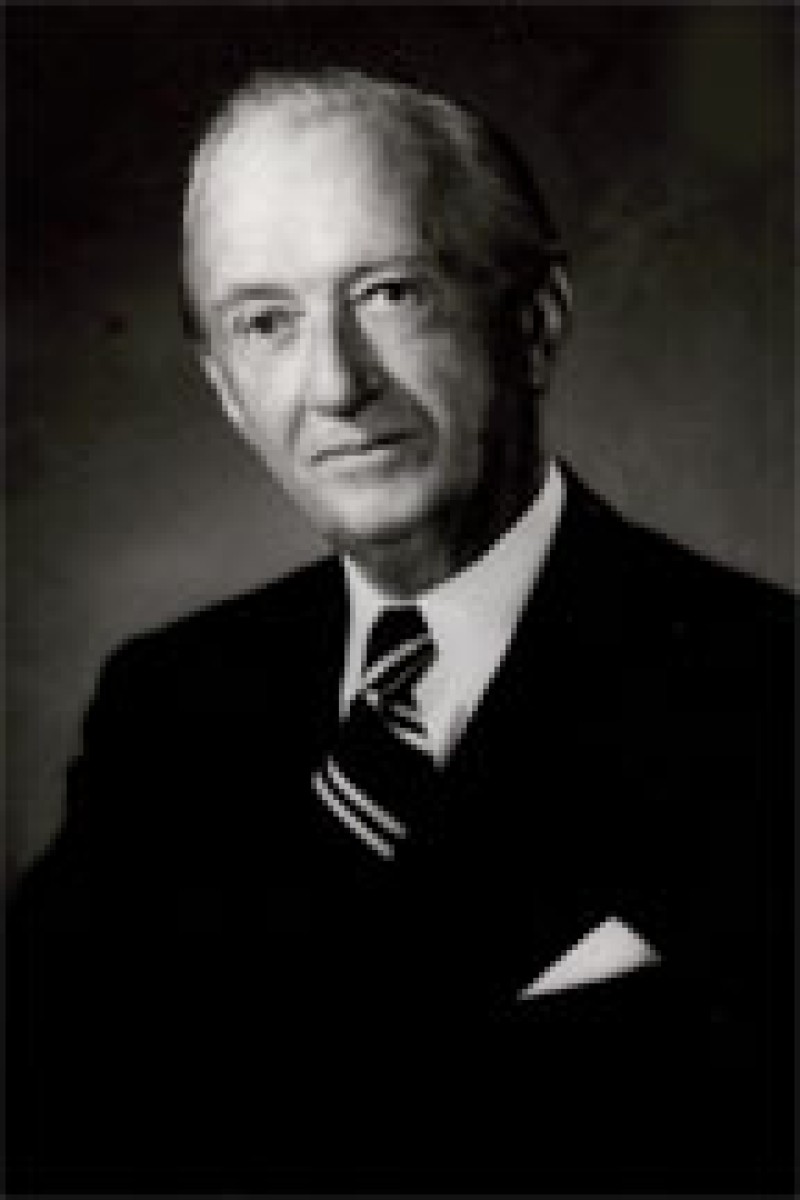James Joseph Patrick (J.J.P.) Corrigan
The legal career of James Joseph Patrick Corrigan spanned 50 years, 30 as a trial attorney and 20 as a judge.
“Pat” was born July 27, 1901, in Cleveland to Patrick and Nora Walsh Corrigan, who emigrated from Ireland. Corrigan attended John Carroll University, where he received a bachelor’s degree in 1922. Moving to Washington, D.C., he became immersed in academic life at Georgetown University Law School. In 1925, he graduated with a master’s degree in law and a juris doctor degree. That same year, he was admitted to the bar in Washington, D.C.
Returning to Cleveland in 1926, Corrigan passed the Ohio bar and established a private law practice that he operated from 1926 to 1956, specializing as a trial and appeals lawyer before state and federal courts and administrative agencies. From 1933 to 1937, Corrigan was chief assistant police prosecutor in the administration of Cleveland Mayor Harry L. Davis.
World War II interrupted Corrigan’s legal career. In 1942, at age 41, he was drafted into the U.S. Army as a private. Later, when men over the age of 38 were released from military service, he chose to remain in the Army. He landed on Normandy Beach with D-Day forces on June 6, 1944. He received a battlefield promotion to second lieutenant for outstanding bravery and fought in the campaigns of Northern France, Ardennes, the Rhineland and Central Europe. The Army awarded him five battle stars and a Bronze Star Medal. He received an honorable discharge in October 1945.
Corrigan was elected in 1956 to be a judge of the Cuyahoga County Court of Common Pleas, serving from 1957 to 1963. In a 1969 interview with the Cleveland Plain Dealer, Corrigan reminisced: “I was importuned in at least four elections to run for mayor [of Cleveland], but on reflection I decided to forego that honor. I preferred the judicial arena as a trial judge. There’s a great deal of glamour and drama connected with the trial of cases, and I liked that.”
In 1962, Corrigan was elected to the 8th District Court of Appeals of Ohio for a six-year term and re-elected in 1968. While serving as an appellate court judge, Corrigan taught trial practice from 1963 to 1969 at Cleveland-Marshall College of Law and Cleveland State University.
On Sept. 11, 1969, Gov. James A. Rhodes appointed Corrigan to fill the unexpired term of Supreme Court of Ohio Justice Charles Zimmerman, who died that June. Corrigan served under Chief Justices Kingsley A. Taft and C. William O’Neill. In a Plain Dealer interview, Corrigan said the appointment was “the fulfillment of my ambitions.” Corrigan was elected to a full six-year term in 1970. Due to his age, he was not eligible to seek another term in 1976.
Corrigan’s commitment to justice and fairness is exemplified in the 1974 opinion he wrote in In re Fisher et al., in which the Supreme Court ruled in a unanimous decision that ”the due process clause of the Fourteenth Amendment to the United States Constitution requires that individuals subject to involuntary civil commitment proceedings be advised of their right to be represented by counsel retained by them, or, if they are unable to afford counsel, that counsel will be appointed for them.” The case involved several patients at the Hawthornden State Hospital who were involuntarily committed with diagnoses of mental illness. They filed a petition for a writ of habeas corpus with the Summit County Court of Common Pleas, alleging that their right to due process was violated when they were not given court-appointed counsel or advised of their right to court-appointed counsel.
Corrigan was noted for his witty opinions. He once said, “Once in a while, when it doesn’t hurt the issue, I like to get away from the strictly legal verbiage of a stock opinion.” The 1976 case of State v. Diana is an example of his humor. In 1974, the Columbus Ohio Police Department executed a search warrant at the residence of Mae Diana and Rosenell Susi. Police found Ms. Diana flushing betting slips down the toilet and Ms. Susi burning adding machine tapes on the stove. Both were convicted of illegal gambling and of destroying evidence. The women appealed their conviction on destroying evidence by saying that the statute was vague. Justice Corrigan penned:
“If these females of the gambling sorority, apparently graduated to criminality as professional gamblers, do not apprehend that the serving of a search warrant heralds the beginning of an investigation of a crime involving them, because they are the only persons named in the search warrant as conducting the criminal gambling operation at the place searched, then the Introduction of Through the Looking-Glass of Lewis Carroll’s Alice should be revisited by all persons connected with the administration of justice in order to be fortified by what Alice found there:
Child of the pure, unclouded brow
And dreaming eyes of wonder!
Though time be fleet and I and thou
Are half a life asunder,
Thy loving smile will surely hail
The love gift of a fairy tale”
Upon his retirement from the Supreme Court, Corrigan joined the Cleveland legal firm of Marshman, Snyder and Corrigan as a partner. He practiced law from 1978 until his death on May 16, 1982.
Corrigan married Nancy McGuiness on Feb, 26, 1948. He is buried in Lakewood Park Cemetery. Corrigan’s portrait was dedicated in 1982 and hangs in the law library of the Supreme Court.

b. July 27, 1901
d. May 16, 1982
126th Justice of the Supreme Court of Ohio
TERM
Sep 11, 1969
to Dec 31, 1976
